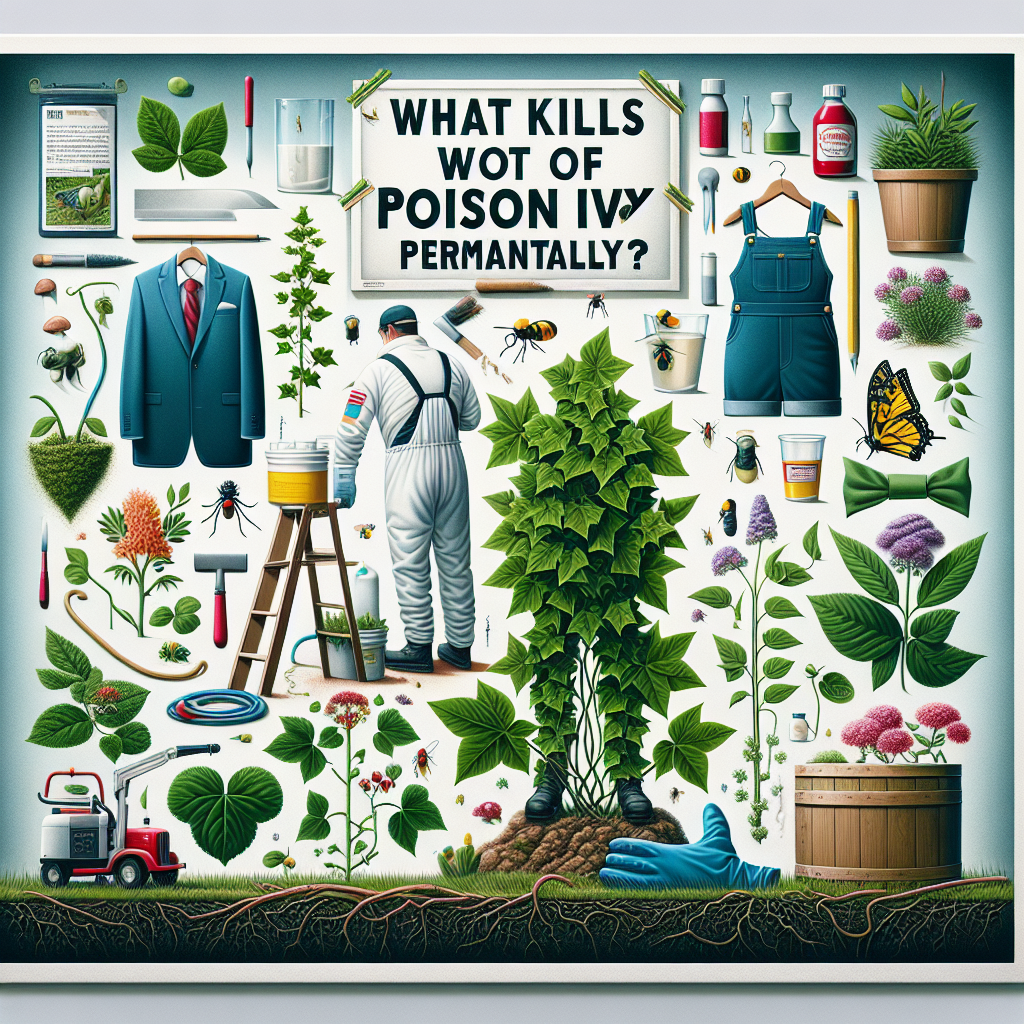Introduction
Imagine stepping into a lush, inviting garden only to find yourself ensnared in the itchy clutches of an uninvited guest—poison ivy. This persistent plant can transform your serene space into a battleground, leaving you scratching your head (and skin) for solutions. But fear not! Just like a heroic tale where good triumphs over evil, there are ways to permanently banish this nuisance from your yard. Join us as we embark on a journey to discover what truly kills poison ivy for good.
- The Nature of Poison Ivy
- Why Permanent Removal is Essential
- Effective Methods to Eliminate Poison Ivy
- Natural Remedies vs. Chemical Solutions
- Preventing Future Infestations
- Key Takeaways
- FAQs
- Conclusion
The Nature of Poison Ivy
Poison ivy, akin to a stealthy villain in the plant kingdom, thrives in various environments across the United States. Its three-leaf pattern is often deceptively beautiful, but touching it can unleash a torrent of itchy blisters. The plant contains urushiol, an oil that acts like a silent adversary against human skin. Understanding its nature is crucial in devising a strategy to defeat it permanently.
Why Permanent Removal is Essential
Consider poison ivy as an unwelcome houseguest; unless evicted permanently, it will inevitably return. Recurrent infestations not only disrupt your outdoor enjoyment but pose health risks too. For those with severe allergic reactions, a brush with poison ivy can lead to serious medical issues. Thus, lasting solutions are not just desirable—they’re essential.
Effective Methods to Eliminate Poison Ivy
Chemical Solutions
For those seeking immediate results, chemical herbicides offer a potent option. Products containing glyphosate or triclopyr have been proven to be effective in targeting the roots of poison ivy, ensuring it doesn’t rise again like an insidious phoenix. However, these should be used judiciously, as they can affect other plants in your garden.
Natural Remedies
If chemical warfare isn’t your style, consider natural remedies as your trusted allies. Vinegar, when sprayed generously and frequently, can weaken poison ivy’s defenses. Similarly, a salt and dish soap mixture can act as a corrosive foe against its leaves, gradually eroding its strength. Though slower than chemicals, these methods are environmentally friendly and safe for children and pets.
To explore more about urgent care services related to plant-based allergies or skin conditions, visit our comprehensive guide on urgent care services provided at Immediate Care Westmont.
Preventing Future Infestations
Like an astute strategist planning for future threats, prevention is key to keeping poison ivy at bay. Regular maintenance, including trimming back excess vegetation and applying mulch, can deter its growth. Additionally, educating family members on identifying poison ivy helps prevent accidental contact and reoccurrence.
Key Takeaways
- Permanently removing poison ivy requires understanding its nature and persistence.
- Chemical solutions provide quick results but must be used carefully.
- Natural remedies offer a safer alternative but require patience and consistency.
- Prevention strategies are vital to avoid future infestations and protect your health.
FAQs
How long does it take for chemical herbicides to work?
Chemical herbicides typically show visible effects within a few days, with complete eradication possible in a couple of weeks depending on the infestation size.
Are natural remedies effective for large infestations?
Natural remedies can be effective but may take longer and require repeated applications for large infestations. Combining them with preventive practices enhances their efficacy.
Conclusion
As we conclude our exploration of defeating the notorious poison ivy, remember that victory lies in persistence and informed choices. Whether you choose the swiftness of chemicals or the gentle touch of natural remedies, the power to reclaim your garden is in your hands. So go forth with confidence, armed with knowledge and determination, and let your yard be forever free of its uninvited menace.
For additional insights into managing plant-induced health concerns or to seek medical advice, consider reaching out to reputable sources such as the CDC’s guide on plant safety. Stay safe and enjoy your beautiful garden!




